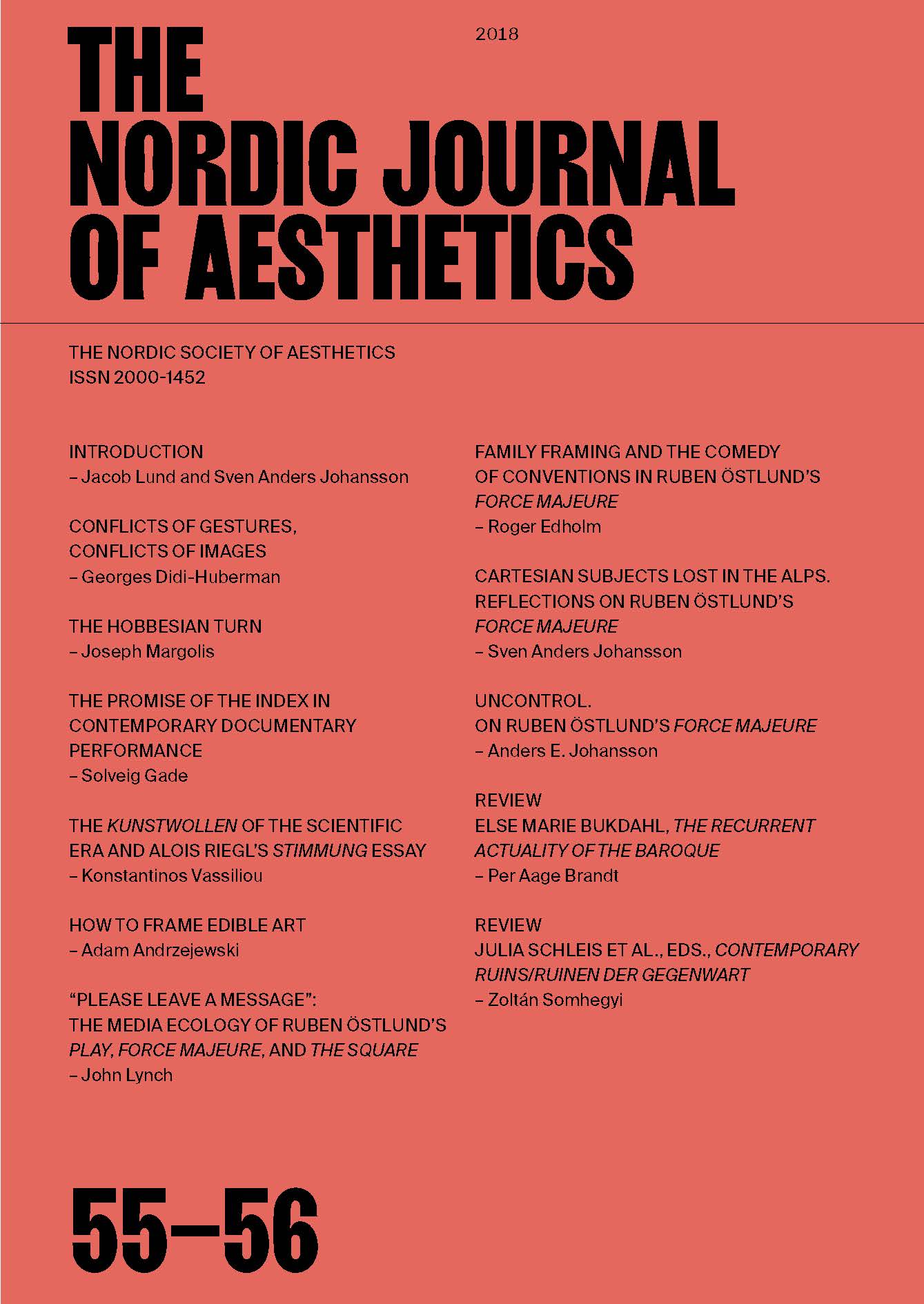UNCONTROL ON RUBEN ÖSTLUND’S FORCE MAJEURE
DOI:
https://doi.org/10.7146/nja.v27i55-56.110754Abstract
Ruben Östlund’s film Force Majeure (2014) was mostly received as a depiction of the crisis of masculinity. And it is, but that particular theme is also placed within a larger context concerning questions of value, understanding, order, and control, questions asked not only on a thematic level but also through cutting, framing, and the use of camera views. Not accepting any simple dichotomy between form and meaning, Force Majeure places itself firmly in an avant- garde and modernist tradition.
Thereby the film is also related to this tradition’s ambition of investigating Western thought, knowledge and art anew, problematising given forms of rational thinking in order for something new to emerge. In the wake of World War II it was, for thinkers like Adorno, Foucault, Stockhausen, and Boulez, seen as unavoidable and urgent to deconstruct the conventions and norms that had made Auschwitz possible. It is still urgent. This article takes its starting point in the connections between avant-garde serialism in music, Foucault’s serialist methods of research and Deleuze’s theories of modernist film, in order to grasp how the aesthetics of Force Majeure continues to deconstruct.
Downloads
Published
How to Cite
Issue
Section
License
Authors who publish with this journal agree to the following terms:
- Authors retain copyright and grant the journal right of first publication with the work simultaneously licensed under a Creative Commons Attribution License that allows others to share the work with an acknowledgement of the work's authorship and initial publication in this journal.
- Authors are able to enter into separate, additional contractual arrangements for the non-exclusive distribution of the journal's published version of the work (e.g., post it to an institutional repository or publish it in a book), with an acknowledgement of its initial publication in this journal.
- Authors are permitted and encouraged to post their work online (e.g., in institutional repositories or on their website) prior to and during the submission process, as it can lead to productive exchanges, as well as earlier and greater citation of published work (See The Effect of Open Access).




